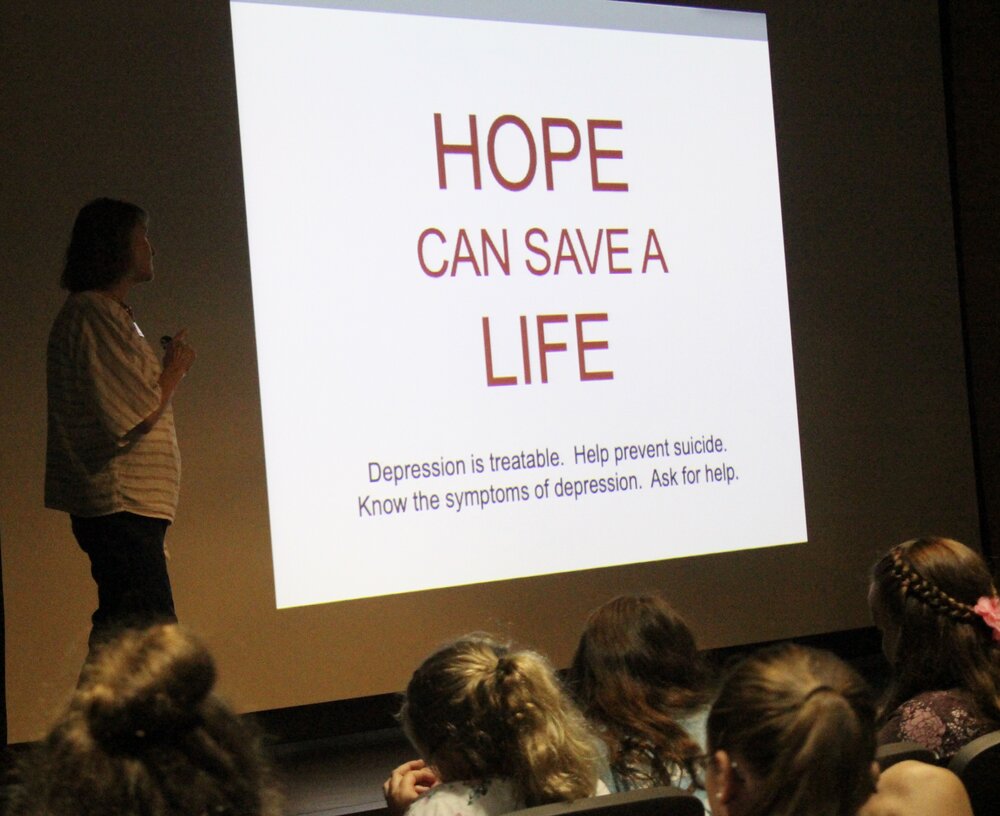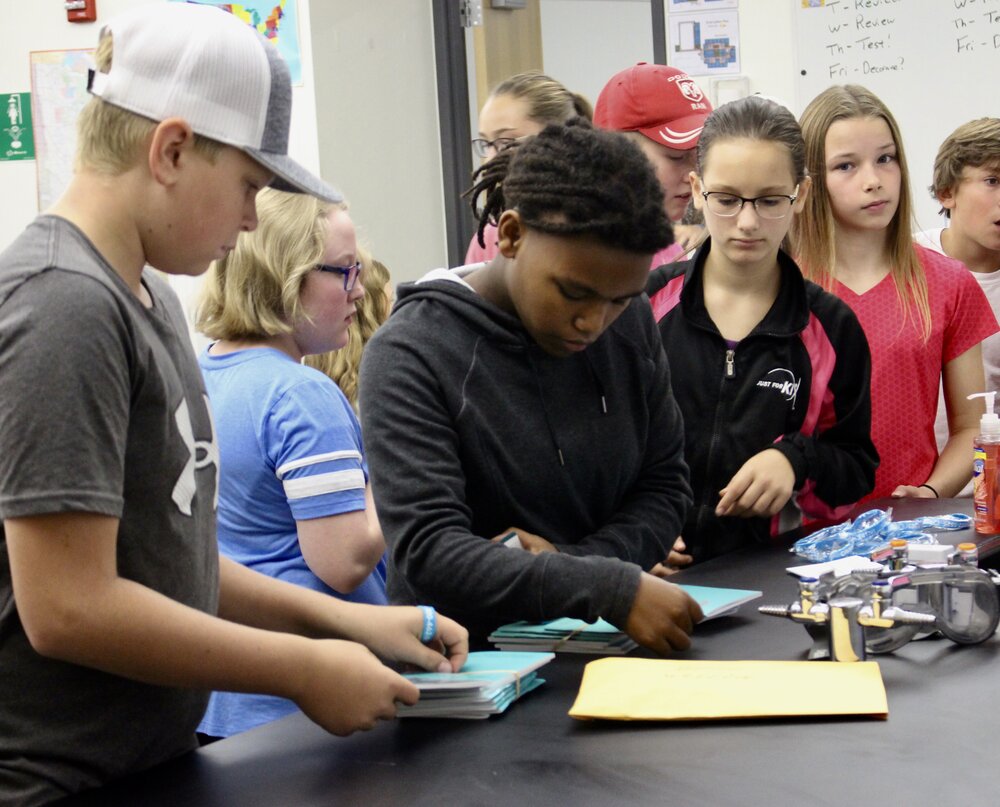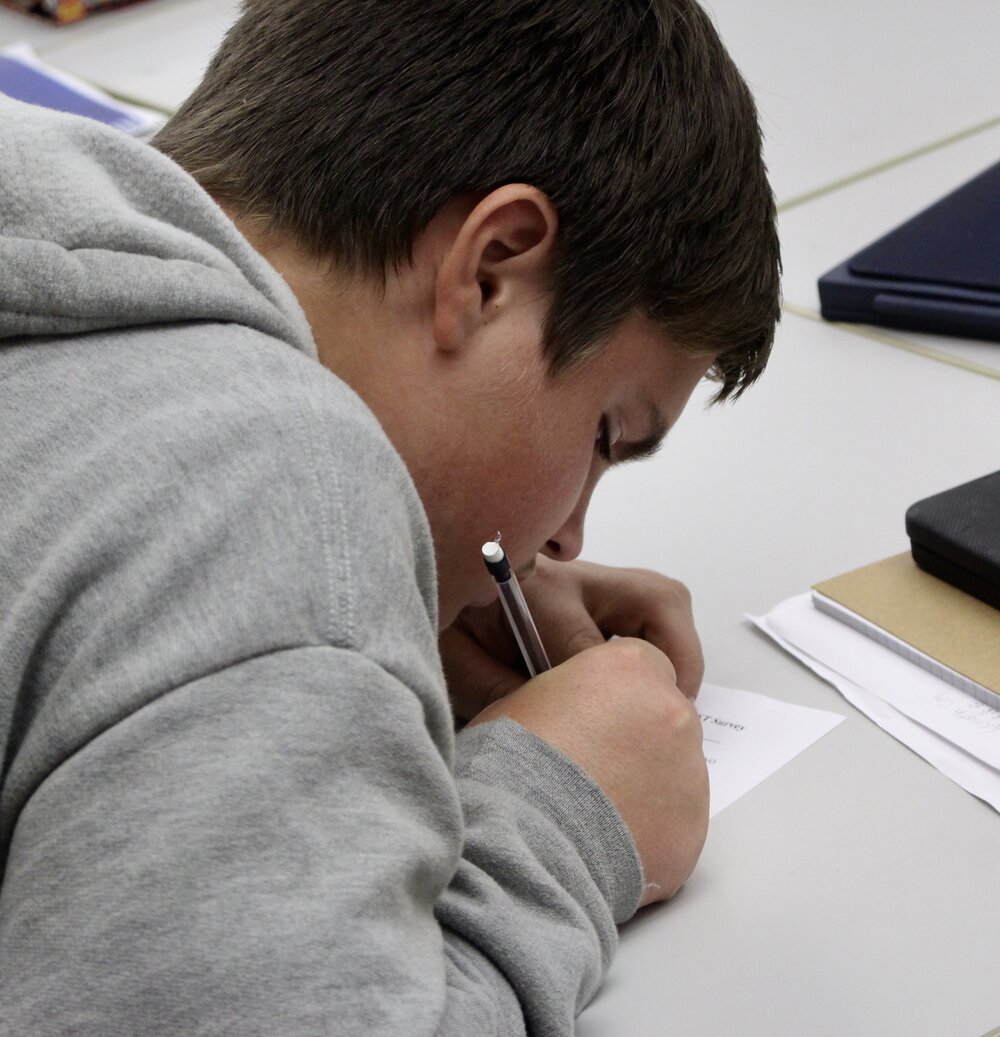
Seventh-grader Kaydin Floyd is on stage helping Mary Marano explain how the weight of stresses affecting youth, such as homework, school activities, and family issues, can be difficult. “When we start piling on situations, it causes stress. It gets overwhelming,” said Marano, executive director of the Crisis Line and Referral Services in the Brainerd Lakes area. “But it’s okay to ask for help,” she added. Photos by Dana Cantleberry, WDC Schools

Marana stresses how “hope” can save a life.
Today, WDC seventh-graders learned how hope is the key to suicide prevention, as well as how to cope when life stresses them out.
“Hope can save a life,” said Mary Marana, the executive director of the Crisis Line and Referral Services, as she spoke to the seventh-grade students this morning about suicide prevention in the Robertson Theatre.

Mrs. Kraska explains to seventh-grade students the next step in their suicide prevention presentation is to fill out a survey in their classrooms.
While it’s normal for students to feel overwhelmed with school, family, relationships, there is a point when situations can make youth feel depressed.
“When several things trigger symptoms of depression, that’s when you need help,” she said.

Students pick up a booklet filled with issues affecting youth and how to get help.
Marana advised students to get plenty of sleep — to get off their devices at night and not drink caffeinated beverages late in the day. She said students need at least 9 hours of sleep to rest the brain and rejuvenate the body. She suggested doing something that makes them happy; find your strengths; a hobby; go for a walk and get outdoors; enjoy physical activity.
“I’m certain after a walk outdoors, you’ll lower the stress level in your life. The weight of the world will be a little less heavy,” she said.
Lastly, if suicidal thoughts or signs of depression are affecting your life or a friend, go find one or two trusted adults in your life.
“And remember,” Marana said, repeating one of the themes of the presentation, “It’s okay to ask for help.”

Students fill out surveys based on the suicide presentation and could request to talk to someone.
Each student received a booklet from the Crisis Line and Referral Service that’s directory filled with issues affecting teens, such as abuse, addiction, cultural diversity, eating disorders, grief, harassment, peer pressure, pregnancy, stress and anxiety.
The book provides also information on the signs and symptoms of any of these issues and how to get help. The booklet was put together by the Crisis Line with input from school counselors and teachers, students and law enforcement agencies.
In addition, students received a small handout with one side stating the warning signs of suicide and the other side outlining symptoms of depression. Students also received a bracelet with the Crisis Line phone and text number.

Students read the small handouts on signs and symptoms of suicide and who to call for help.
After the presentation, students filled out a survey based on the “Suicide Prevention & Hope” presentation. Crisis Line members, WDC’s Kraska and social worker Laura Kiser, and Northern Pines’ Justine Jarmin were available to talk to any student privately who requested it.
The Crisis Line and Referral Service provides suicide prevention to 16 school districts and covers Aitkin, Cass, Crow Wing, Morrison, Todd and Wadena counties. They’ve been in existence since 1988. Marana has been presenting to schools and communities since 2006.
In addition, during today’s Advisory at WDC Middle/High School, WDC teachers focused on suicide prevention and making sure students in grades 5-12 are comfortable coming to them if they are hurting or need someone to talk to. WDC social worker Laura Kiser shared a number of videos from the “Be The 1 To” campaign and talking points to help get those conversations started.

Being available today to talk with students if they were struggling or needed help after the presentation, from left: Toni Kraska, WDC’s licensed school counselor; Justine Jarmin, Northern Pines therapist; Mary Marana, executive director, Crisis Line and Referral Center; and Carmon Thelen, executive assistant, Crisis Line and Referral Center. Not pictured: Laura Kiser, WDC’s middle/high school social worker.